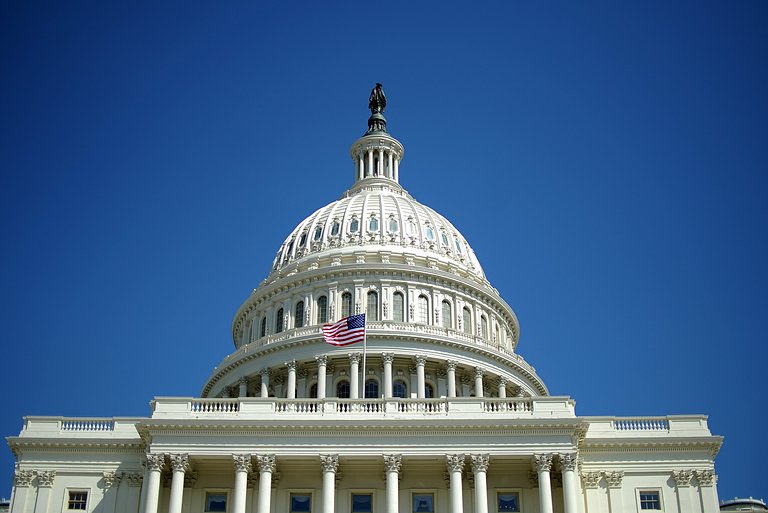
A separate chapter is dedicated to Georgia in the report prepared by Democrats in the US Senate Foreign Relations Committee.
The 200-page document is titled “Putin’s asymmetric assault on democracy in Russia and Europe: implications for U.S. national security”.
The report was presented by U.S. Senator Ben Cardin.
“The 2008 invasion of Georgia is a stark example of how Russia exerts power—by taking territory inside another country. After years of rising tensions, Russian troops supported separatists in the South Ossetia and Abkhazia regions in August 2008, resulting in the Russian government’s recognition of their independence. The conflict also represents the first time that cyberattacks were used alongside a military invasion—an innovation that the Russian government was to hone with the invasion of Ukrainian territory six years later. Since 2008, Russian government propaganda and Russian support for political parties and civil society groups remains a significant problem in Georgia as pro-democratic forces in the country seek to deepen integration with the west.
Leading up to August 2008, tensions had been growing in South Ossetia and Abkhazia, regions that had been contested since Georgia’s independence in 1991. South Ossetian separatists shelled Georgian villages in early August, which led to the deployment of the Georgian military to the area. The Russian military responded by pushing the Georgian troops out of South Ossetia with a heavy assault of tanks. It soon became clear that the Russian attack was not limited to just conventional military means, but was much more comprehensive in scope.
Despite the seemingly sudden escalation into a hot war, the Georgian government accused the Russian government of preparing the hybrid battlefield a month before the invasion”, – the report reads.
According to report, as early as July 20, the Georgian government experienced distributed denial of service (DDoS) attacks and President Mikhail Saakashvili’s website was forced to shut down for 24 hours.
“As Russian troops entered Georgian territory on August 8, the websites of the Georgian president, the parliament, the ministries of defense and foreign affairs, the national bank, and several news outlets were hit with cyberattacks. The Georgian government accused the Russian government of conducting these attacks, which the Kremlin denied.
Michael Sulmeyer, a senior Pentagon official in charge of cyber policy during the Obama Administration, said that Russia’s invasion was ‘‘one of the first times you‘ve seen conventional ground operations married with cyber activity. It showed not just an understanding that these techniques could be useful in combined ops but that the Russians were willing to do them. These guys implemented’’, – the report notes.
Report says that the governments of Estonia and Poland quickly mobilized to assist the Georgian government to get back online, with the Estonians sharing experience from the attack on their cyber infrastructure the year before.
“Saakashvili came to power in the wake of the Rose Revolution in 2003 and he quickly sought to establish stronger ties with Western institutions, drawing Putin’s ire. At an April 2008 summit in Bucharest, NATO pledged to review the possibility of offering a Membership Action Plan to Georgia. Putin responded to the statement by saying that expansion of NATO to Russia’s borders ‘‘would be taken in Russia as a direct threat to the security of our country.’’ While not the only factor in Russia’s 2008 invasion, Georgia’s active steps to deepen ties with NATO appears to have been a critical element of Russia’s decision to invade.
The short war would presage future Russian hybrid warfare in Europe, meant to resist NATO and EU enlargement and the consolidation of democracy on the continent. Today, Russia recognizes the ‘‘independence’’ of South Ossetia and Abkhazia, and, with the support of separatist forces, continues to station troops in the two breakaway regions. Moscow has also entered into treaties of partnership and strategic alliance with the two regions, further solidifying the frozen conflict.
The timing of the war in Georgia coincided with a political transition in the United States from the Bush to Obama Administrations. The outgoing Bush Administration seemed reluctant to impose sanctions on Russia for its aggression in the waning days of its term. The incoming Obama Administration sought a reset with Russia, which also precluded significant coercive measures to respond to the Kremlin’s aggression. Despite the lack of a more aggressive response to Russian actions, both administrations did invest significantly in building governing institutions in Georgia and its integration into NATO structures,” – the report reads.






